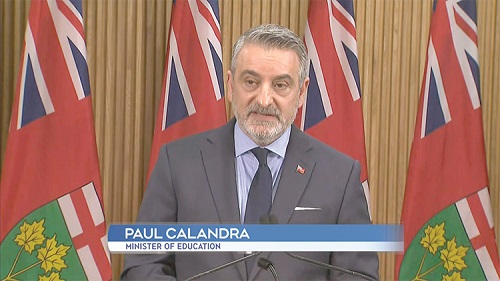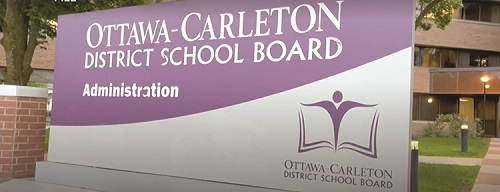Calandra vs School Boards: It’s Hardball Politics
TORONTO – In North American sports, there is an expression that is utilized to convey the “seriousness” and “resolve” of participants: he/she “plays hardball.” Minister of Education Paul Calandra continues to play hardball with school boards. He wants to see evidence of long-term planning by School Boards that puts students first and dedicates resources to student needs accordingly.
Calandra gave early warning that, under his mandate, the Ministry will go “back to [these] basics”. On reading the Investigation Report Regarding the Ottawa-Carleton District School Board (OCDSB), prepared by Pricewaterhouse Coopers (PWC), he appears to distinguish between a balanced budget for purely accounting objectives and a budget that delivers on student needs.
Calandra is not moved by numbers tailored to convey an impression that a serious third-party assessment might suggests it is sustainable. The investigator underscores this fact: “As a result of consecutive-in year deficits, the [OCDSB] depleted its accumulated surplus in the 2023-24 school year, reporting an accumulated deficit available for operations. As a result, the Board has been assessed as high-risk by the Ministry.”
The OSDSB, one of the province’s largest school boards and dominated in numbers by families dependent on the federal civil service, received Core Education Funding for an estimated 76,059 students in 2023-24 of $13,394 per and a projected 76,574 students for 2024-25 at $13,751 per enrolled (projected, but not yet actual). Based on those projections, the Ministry has made available an allocation of $ 1,052,988,959, an increase o $34,285,562 over the previous year.
However, the Board is experiencing declining enrollment. The student population is split roughly 2:1 elementary to secondary, with the former experiencing diminishing registration. This fact alone would have a stark impact on monies received and [how] money is spent.
In addressing that, the Report is filled with charts numbers and dollar allocation/savings. And it itemizes amounts for which the Administration is responsible (Operations) and those for which Trustee engagement may be required (relatively minimal). Keep in mind that the “fiscal year” for 2024-25 ends on August 31, therefore, the official/actual numbers projected have not been tested by an audit.
The Investigation, consequently, focused on two main areas: the assessment of the OCDSB’s financial position – does it have enough money to meet its obligations – and Executive Compensation, is the Administration being compensated adequately for Operational duties within its authority. The investigator needed to assess the sustainability of planning and whether the public is receiving value for money, before making a recommendation.
The Education Act requires an “exacting” assessment to ensure that at least one of three conditions are met prior to a recommendation that the Board’s control and charge over the Administration of its affairs be vested in the Ministry of Education- the Minister.
Notwithstanding the assessment’s finding of [no] “reckless or deliberate wrongdoing…”, the investigator recommended “that supervision of the Board is warranted based on the Board having met a condition in subsection 257.30 (6) of the Education Act.”
The two images, above and below, are screenshot from a CTV NEWS video





